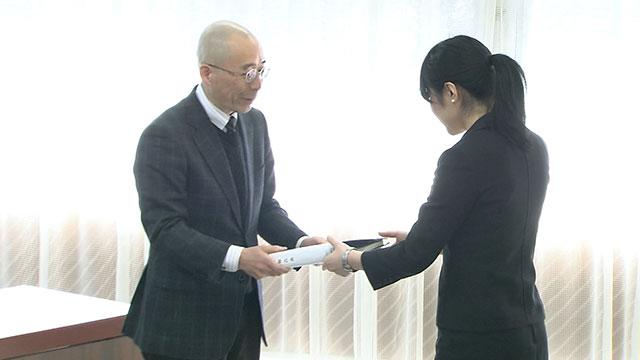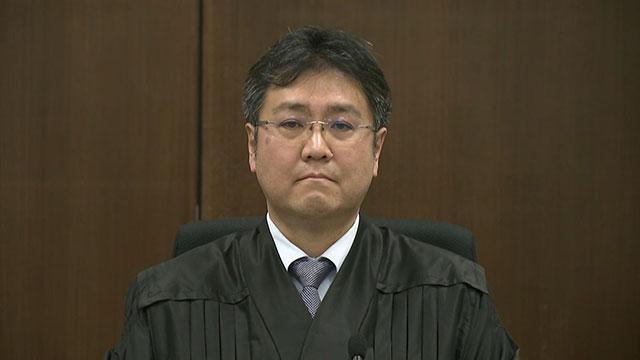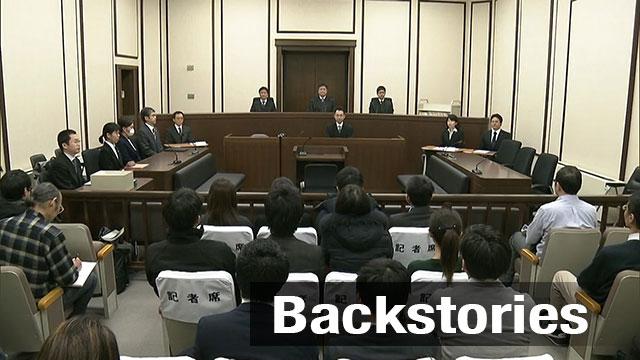No direct connection
In October 2011, a 13-year-boy jumped from the apartment building where he lived in the Western Japanese city of Otsu in Shiga Prefecture.
The City's board of education surveyed classmates and realized that the boy had been assaulted by his classmates. But, it said, the inquiry did not find a direct connection between the suicide and the bullying. The board closed its investigation without coming to a conclusion about why the boy took his own life.
Parents take legal action
In February 2012, the boy's parents sued three former classmates, their parents and the city.
The case took a dramatic turn after five months when information kept under wraps by the board came to light.
Students had revealed that the boy had been forced to eat dead insects and commit mock suicide. It also hid the fact that classmates even staged funerals for him.
The local police launched an investigation into the school and the board of education. They sent papers on two of three former classmates to prosecutors, citing alleged assault. The third boy was only 13 at the time and exempt from criminal prosecution. They sent papers on him to a child guidance center.
However, the police also failed to establish whether the classmates' assaults led to the suicide.

Otsu City then established an independent panel that eventually concluded bullying was the direct cause of the suicide. It reached a settlement with the boy's parents in 2015 and paid them 13 million yen or 117,000 dollars, in damages.
At trial, the defendants admitted kicking the boy, but said they were just playing. The focal point of the trial was whether there was a causal link between the bullying and his suicide.

The court ruling
On February 19th this year, Otsu District Court Presiding Judge Shigeyasu Nishioka ruled that bullying was the main reason behind the suicide. He said, "the relationship between the classmates and the boy became established as one between a group of bullies and their victim."
He said the classmates regarded the boy as inferior and escalated their assaults. The judge pointed out that as the friendship disintegrated and the bullying became entrenched, the boy felt increasingly powerless and desperate and began to have suicidal thoughts.
The judge ordered two of three classmates to pay compensation, but said the third classmate had only a small degree of involvement and did not find him liable.

A long road
The boy's father told reporters he is satisfied with the ruling, saying: "It's been a long road. I have been thinking this trial is not only for my son, but also for everyone who suffers from bullying."
He also said he thought that he had received a final message from his son, hoping for a society in which children never again take their own lives because of bullying.
A major social issue
Eight years have passed since the boy took his life, yet bullying remains a problem in many schools.
The case led to the enactment of anti-bullying legislation in 2013. The law aims to detect bullying at an early stage and shine a light on the details surrounding the alleged behavior.
Even so, the number of cases continues to rise. The education ministry says a survey conducted in elementary, junior and senior high schools across Japan uncovered more than 414,000 cases of bullying during the academic year that ended in March 2017. The figure was the highest ever recorded.
The survey also found that the number of cases considered to pose a serious threat to the victim totaled more than 470 -- up about 80 from the previous year.
Professor Daisuke Fujikawa of Chiba University's Faculty of Education says the sharp increase suggests teachers have a greater awareness of the problem.
But, he adds, there are still many schools that are slow to respond after recognizing bullying. He says head teachers must take quick and effective action to deal with problems they encounter.

